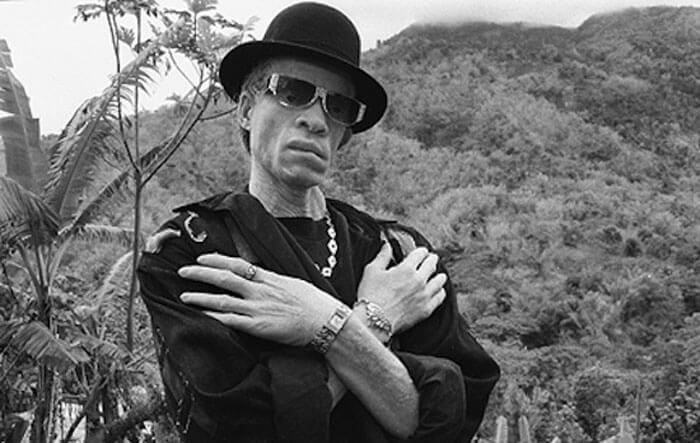In the early 1980s Yellowman helped establish dancehall as the wave of the future. He brought the popularity of toasting (the reggae equivalent of rapping) to a whole new level thanks to his talent for improvisation, easy flow and sense of humor. For better or for worse, he also symbolized dancehall’s predilection for “slack” lyrics about casual violence, sexism, homophobia, and general rudeness.
His real name is Winston Foster, and he was born in Negril, Jamaica, in 1959. He grew up in an institution in Kingston, an early target for abuse because of his albinism, which carried tremendous social stigma in Jamaica.
Music kept him company and, influenced by early reggae DJs like U-Roy, he practiced rhyming. This led him to getting a job as a substitute DJ at Gemini Sound System and in winning the famous Tastee Talent Contest in 1979.
He chose Yellowman as his stage name and quickly began drawing crowds to concerts, particularly because of his humorous stage show and lyrics with jokes about his skin color and bizarre tales of his sexual conquests.
Yellowman’s first full-length album, “Them a Mad Over Me”, was recorded for Channel One in 1981. Among his early successes were singles like Me Kill Barnie, Operation Eradication and the scandalously slack Shorties, which Peter Tosh condemned as degrading to women.
But when he partnered with pioneering dancehall producer Henry “Junjo” Lawes, Yellowman rose to stardom internationally: the 1982 LP Mister Yellowman was released by Greensleeves and is still often acclaimed as his best album.

Famous singles released in the following years included Yellowman Getting Married, Nobody Move Nobody Get Hurt, Mr. Chin, Zungguzungguguzungguzeng and Wreck a Pum Pum.
Many of his recordings during this era featured vocal contributions from fellow DJ toaster Fathead, whose specialty was punctuating lines with animal noises such as “ribbit” and “oink”.
Yellowman became the first reggae deejay to acquire a major label deal in the USA when he signed with CBS Records in 1983.
Although graphic sexuality continued to be his forte, reaching levels of explicitness previously unheard in Jamaica, Yellowman also had some albums that delved more into social consciousness. One example was “Don’t Burn It Down” (1987), which featured singles like Stop Beat Woman, which condemned domestic violence, and Free Africa, which criticized apartheid.
Around this time, Yellowman had to deal with throat cancer, but fortunately recovered. He continued recording with his trademark sexual boasts and gay jokes.
However, he was greatly shaken by his second battle against a life-threating illness in the early 1990s, this time with skin cancer. After this, he devoted himself almost exclusively to spiritual and social concerns, for example, with albums like “New York” (2003) and “No More War” (2019).
Although his popularity started falling after 1985, Yellowman is regarded as the father of dancehall reggae, or the musical precursor to American rap: his initial style remains the most influential and has paved the way for countless dancehall toasters that emerged after him, such as Shabba Ranks.
Source: biography by Steve Huey on allmusic.com

